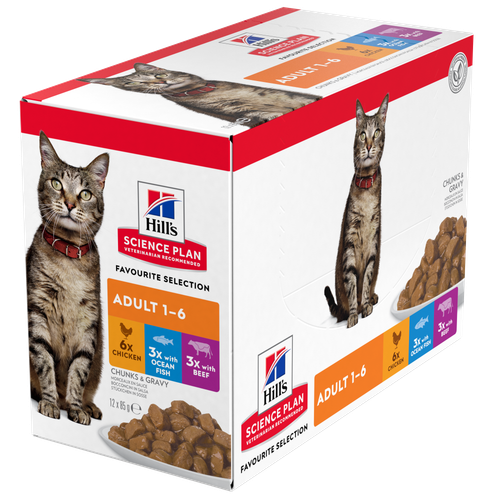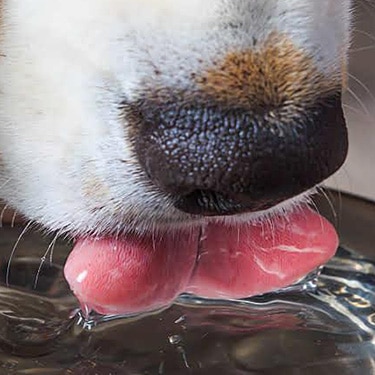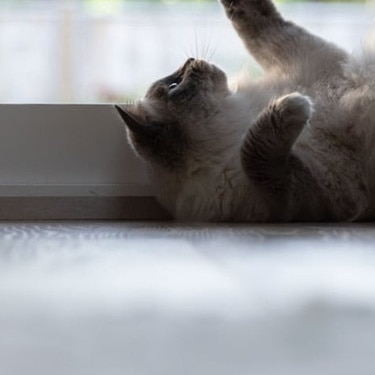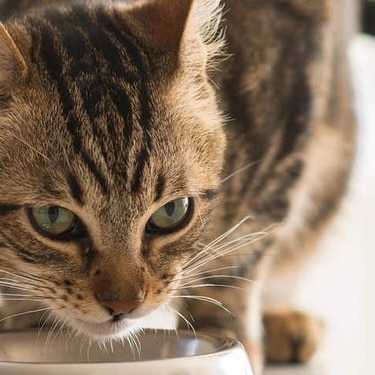
-
Find the right food for your petTake this quiz to see which food may be the best for your furry friend.Find the right food for your petTake this quiz to see which food may be the best for your furry friend.Featured products
 Sensitive Stomach & Skin Dog Food
Sensitive Stomach & Skin Dog FoodHill's Science Plan Sensitive Stomach & Skin Adult Wet Dog Food with Chicken is a complete premium dog food for adult dogs from 1 year. This savoury tinned loaf is enriched with ingredients that support digestive health & skin care.
Shop Now Perfect Digestion Small & Mini Adult Dog Food
Perfect Digestion Small & Mini Adult Dog FoodHill's Science Plan Perfect Digestion Small & Mini Adult Dog Food with Turkey is a complete premium pet food for small breed adult dogs aged 1–6 years. This deliciously smooth mousse is precisely balanced to deliver the appropriate amount of energy and to support digestive health in adult, small breed dogs.
Shop Now Perfect Weight Small & Mini Adult Dog Food
Perfect Weight Small & Mini Adult Dog FoodHill's Science Plan Adult Small & Mini Dog Food with Turkey is a complete premium pet food for adult small dogs from 1 year old that are prone to weight gain or slightly overweight. This deliciously smooth mousse is formulated to deliver the appropriate amount of energy to support weight maintenance in adult dogs.
Shop NowFeatured products with Ocean Fish, Chicken
with Ocean Fish, ChickenTender chicken chunks in gravy for cats, with L-carnitine and fewer calories for ideal weight management. Packed with high-quality protein, omega-6s, and vitamin E for shiny fur and healthy skin.
Shop Now Adult Wet Cat Food with Chicken
Adult Wet Cat Food with ChickenTender chunks in gravy for cats, with high-quality protein to maintain lean muscle. With vitamin E and omega-3s & -6s for healthy skin and balanced minerals to support healthy vital organs.
Shop Now Mature Adult Wet Cat Food with Chicken
Mature Adult Wet Cat Food with Chicken
Tender chicken chunks in gravy for mature adult cats. Made with easy-to-digest ingredients, high-quality protein for lean muscle maintenance and antioxidant vitamins C+E for optimal health.
Shop Now -
Dog
- Dog Tips & Articles
-
Health Category
- Weight
- Food & Environmental Sensitivities
- Urinary
- Digestive
- Joint
- Kidney
-
Life Stage
- Puppy Nutrition
- Adult Nutrition
- Senior Nutrition
Cat- Cat Tips & Articles
-
Health Category
- Weight
- Skin & Food Sensitivities
- Urinary
- Digestive
- Kidney
-
Life Stage
- Kitten Nutrition
- Adult Nutrition
Featured articles An Owner's Guide To Safe Water Sources For Pets
An Owner's Guide To Safe Water Sources For PetsEnsure your pet's hydration with our owner's guide to safe water sources for pets. For detailed tips on maintaining your pet's health, visit Hill's Pet UK.
Read More Virtual Vet Visits: What You Need to Know
Virtual Vet Visits: What You Need to KnowLearn the ins and outs of a televet appointment before you talk to a vet online.
Read More Tips For Mixing Wet And Dry Pet Food
Tips For Mixing Wet And Dry Pet FoodDiscover tips for mixing wet and dry pet food to ensure balanced nutrition and variety for your pet. For comprehensive feeding advice, visit Hill's Pet UK.
Read More -


Cats love to groom, so much so that it’s quite normal for them to groom themselves for up to half of the time they are awake! But if you notice that your cat suddenly seems to be doing little else, it could be a sign of skin irritation or itchiness. There are lots of reasons why your cat may start itching, scratching and overgrooming. In this article we’ll look at the most common causes and how you might get your cat some welcome relief.
Common causes of itching in cats
Parasites. Fleas are far and away the most common cause of itchiness and overgrooming in cats. Even if your cat spends most or all of their time indoors, they can still get fleas because they can be brought in on our clothing. Fleas tend to cause most irritation around the head, neck and the base of the tail, so if you notice these areas being tended to most, fleas may well be the issue. Fleas actually spend most of their time off the cat, so for every flea you see on the cat there will be at least another hundred in the house! Bald patches and scabs, especially in the areas we mentioned are common, especially if your cat is allergic to fleas. In these cats, just one bite can cause huge reactions and severe itching and irritation.
Other parasites like mites may also be an occasional problem.
Atopic dermatitis (atopy). Some cats are allergic to things in the environment such as pollen, grasses, dust mites and so on, and often they have multiple allergies. In the case of pollen and plants, you may notice that your cat is worse at certain times of the year.
Food allergy. Just as with atopy, food allergies can cause skin irritation and itching, too. The most common food allergies in cats are beef, fish, chicken and dairy products.


Tasty Tips
Skin infection. Skin infections aren’t very common in cats and are often secondary to other things. For instance, if your cat has been scratching and overgrooming so much that they’ve damaged the skin, bacteria from their mouth and skin can penetrate and set up infection in the deeper layers of the skin. This becomes a vicious itch/scratch cycle.
Stress. Stress is a really important cause of overgrooming and hair loss in cats and can easily be confused with a genuine skin problem. Usually, hair loss due to this kind of grooming doesn’t result in skin damage the way that the intense itch of allergies does. .
What can you do to help your cat?
Keeping parasite control up to date is the very first thing you can do. If you can prevent fleas and other parasites from multiplying, you will be one step ahead of the game.
If you do notice problems such as excessive licking or scratching, then it’s best to see your vet, and sooner rather than later. The treatment your cat receives will vary depending on the cause of the irritation, and your vet may also want to do a food elimination trial to rule out an allergy while other tests are ongoing. For skin cases, these food trials may need to go on for 8-12 weeks. If stress is found to be the cause of the overgrooming, your vet or nurse team can give you some great tips about how to reduce stress at home and reduce or avoid possible conflict between your cats.
Skin issues can be difficult to diagnose, so the sooner your vet can get on the diagnostic road, the sooner your cat will get relief from that ever-annoying itch.
Reviewed by Dr. Hein Meyer, DVM, PhD, Dipl-ECVIM-CA


Sarah Whitehead is a renowned Certified Clinical Animal Behaviourist based in the UK, with a deep passion for unlocking the secrets of animal behaviour. With expertise in both dogs and cats, Sarah is dedicated to helping pet parents decode the subtle language of body cues and behaviour. She believes that training and play are powerful tools not only for improving communication but for building lasting, meaningful connections between humans and their canine and feline companions. Sarah’s approach combines science with compassion, offering a fresh perspective on how to enrich the lives of our pets and deepen the bond we share with them.
Related products

Tender chicken chunks in gravy for cats, with L-carnitine and fewer calories for ideal weight management. Packed with high-quality protein, omega-6s, and vitamin E for shiny fur and healthy skin.

Hill's Science Plan Adult Cat Premium Chunks in Sauce with Turkey is a complete pet food for adult cats aged 1-6 years

Tender chicken chunks in gravy for mature adult cats. Made with easy-to-digest ingredients, high-quality protein for lean muscle maintenance and antioxidant vitamins C+E for optimal health.

Tender chunks in gravy for cats, with high-quality protein to maintain lean muscle. With vitamin E and omega-3s & -6s for healthy skin and balanced minerals to support healthy vital organs.
Related articles

Feeding time can be a wonderful bonding opportunity for you and your cat. Find out how to make the most of it and create a healthy habit with HIll's Pet UK.

Find the right Hill

Discover what you can do to spot and support a sensitive cat stomach. See what routines and food you can implement to help your cat be happy and healthy.

Put your cat on a diet without them knowing
Our low calorie formula helps you control your cat's weight. It's packed with high-quality protein for building lean muscles, and made with purposeful ingredients for a flavourful, nutritious meal. Clinically proven antioxidants, Vitamin C+E, help promote a healthy immune system.
Put your cat on a diet without them knowing
Our low calorie formula helps you control your cat's weight. It's packed with high-quality protein for building lean muscles, and made with purposeful ingredients for a flavourful, nutritious meal. Clinically proven antioxidants, Vitamin C+E, help promote a healthy immune system.

